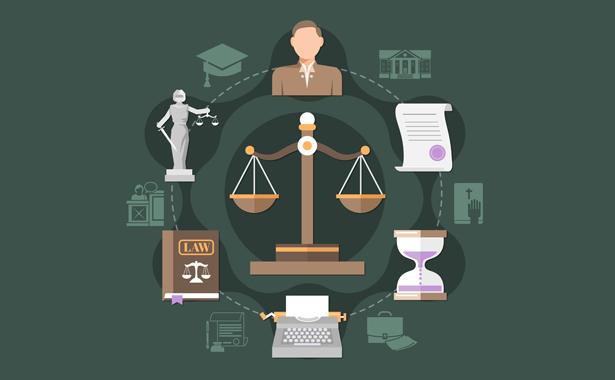In an increasingly complex financial landscape, safeguarding family wealth through strategic estate planning has become paramount for many families. As we navigate the intricacies of asset management and inheritance laws, the importance of employing robust legal tools to protect family wealth cannot be overstated. This article delves into the most effective legal instruments available today, providing a comprehensive analysis of their benefits and limitations. By exploring trusts, wills, and other sophisticated estate planning mechanisms, we aim to equip you with the knowledge to make informed decisions that ensure the preservation and seamless transfer of wealth across generations. With a confident grasp of these tools, families can not only mitigate potential legal challenges but also secure their financial legacy for the future.
Trusts as Cornerstones of Estate Planning
In the intricate landscape of estate planning, trusts emerge as pivotal instruments for safeguarding and managing family wealth. These legal entities offer unparalleled flexibility and control, enabling individuals to dictate the terms of asset distribution with precision. Trusts serve as powerful vehicles that not only protect assets from potential creditors but also provide tax advantages and privacy, which are often paramount in preserving family legacies.
Here are some compelling benefits of incorporating trusts into your estate plan:
- Asset Protection: Shield family wealth from creditors and legal disputes.
- Tax Efficiency: Minimize estate taxes and leverage tax-saving strategies.
- Privacy: Keep estate matters confidential and out of public probate proceedings.
- Control Over Distribution: Specify how and when beneficiaries receive their inheritance.
- Continuity: Ensure seamless management of assets in the event of incapacity.
By leveraging the robust framework of trusts, families can craft a comprehensive estate plan that not only meets their current needs but also anticipates future challenges, thus securing financial stability for generations to come.
Leveraging Tax Strategies for Wealth Preservation
In the intricate world of estate planning, implementing astute tax strategies can be a pivotal element in ensuring the preservation and growth of family wealth. By understanding and utilizing the diverse array of legal instruments available, individuals can effectively safeguard their assets from excessive taxation. Here are some of the most potent tools at your disposal:
- Irrevocable Trusts: These structures can help in reducing estate taxes by removing assets from the taxable estate. Once assets are transferred into an irrevocable trust, they are no longer considered part of your estate, thus reducing potential tax liabilities.
- Family Limited Partnerships (FLPs): FLPs allow for the transfer of assets to family members while maintaining control. They provide a strategic advantage in terms of gifting, valuation discounts, and ultimately, tax savings.
- Charitable Remainder Trusts (CRTs): By donating to a CRT, you can receive an income stream for a set period, after which the remaining assets are transferred to a charity. This not only supports philanthropic goals but also offers significant tax deductions.
Each of these tools offers unique benefits and, when used judiciously, can significantly mitigate the tax burden on your estate. Proactive planning and expert guidance are essential to tailor these strategies effectively to your individual circumstances, ensuring that your family’s wealth is preserved for generations to come.

Ensuring Asset Protection with Legal Safeguards
When it comes to estate planning, legal safeguards play a pivotal role in ensuring the protection of family wealth. Trusts are one of the most effective tools in this regard. They not only provide a structured way to manage and distribute assets but also offer significant privacy and tax benefits. By establishing a trust, families can avoid the often lengthy and public probate process, ensuring that assets are distributed according to the wishes of the benefactor with minimal delay and legal interference.
Another essential legal safeguard is the use of prenuptial agreements. These agreements help in delineating asset ownership before marriage, providing a clear understanding of financial rights and responsibilities. This is particularly crucial in safeguarding family wealth from potential division during a divorce. Additionally, limited liability companies (LLCs) can be strategically used to hold family assets, offering protection from personal liabilities and providing an additional layer of asset protection. By incorporating these legal tools, families can effectively shield their wealth from unforeseen challenges, securing their legacy for future generations.

The Role of Life Insurance in Securing Family Wealth
Life insurance plays a pivotal role in ensuring the financial stability and continuity of family wealth. When integrated into estate planning, it serves as a powerful tool to mitigate risks and provide liquidity at critical times. Life insurance proceeds are generally free from income tax, making them an efficient means to transfer wealth. Additionally, they can be used to cover estate taxes, settle debts, or support dependents, thus preserving other assets within the estate. This strategic use of life insurance helps to protect the family’s financial future and ensures that wealth is passed down without unnecessary burdens.
- Tax Efficiency: Life insurance payouts typically bypass income taxes, providing a clean transfer of wealth.
- Debt Settlement: Proceeds can be used to clear outstanding debts, preventing the need to liquidate other assets.
- Estate Liquidity: Ensures immediate access to funds for settling estate taxes and other obligations.
- Family Protection: Offers financial security for dependents, maintaining their standard of living.
By incorporating life insurance into a comprehensive estate plan, families can effectively safeguard their wealth, ensuring that it is preserved and passed on to future generations with minimal disruption.



